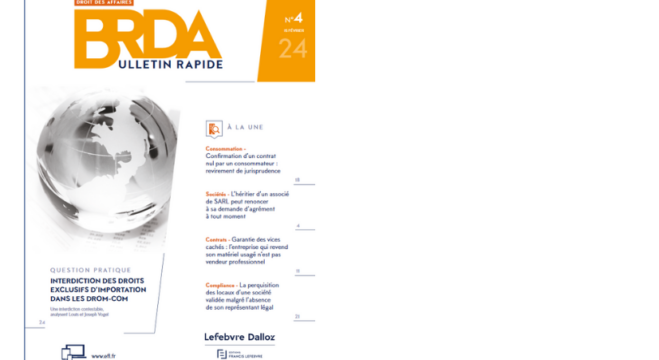Cabinet d’avocats full-service
en droit économique
Vogel & Vogel,
incontournable en droit économique.
Vogel & Vogel,
incontournable en droit
économique
Vogel & Vogel possède une expertise reconnue en droit de la concurrence et de la régulation, de la distribution et de la liberté de circulation, de la consommation et des risques industriels. Nos équipes spécialisées prennent en charge tous les aspects des dossiers dans ces domaines. Le cabinet propose ainsi un service complet allant du conseil et du contentieux à la compliance et au lobbying.

Concurrence & Régulation
L’équipe droit de la concurrence / régulation intervient dans tous les domaines du droit de la concurrence et de la régulation, français et européen, et prend en charge tous les aspects des dossiers confiés.

Distribution & Liberté de circulation
L’équipe droit de la distribution / liberté de circulation permet d’assurer le fonctionnement et la mise en place de réseaux de distribution sous toutes leurs formes, tant en France que dans l’Union européenne, dans le cadre du marché intérieur.

Consommation & Risques industriels
L’équipe droit de la consommation / risques industriels est rompue aux questions de droit de la consommation, publicité et promotion des ventes et propose des solutions innovantes pour tous les domaines de l’après-vente et des risques industriels.

 MON COMPTE
MON COMPTE




















